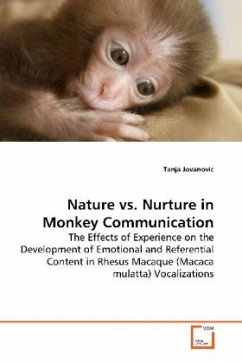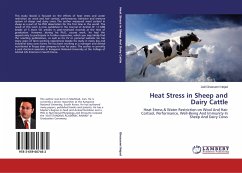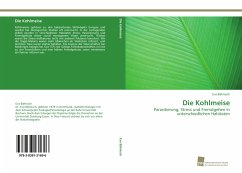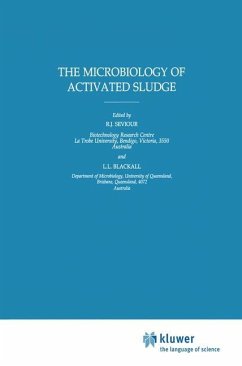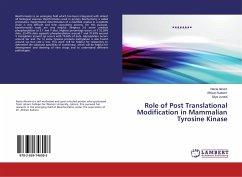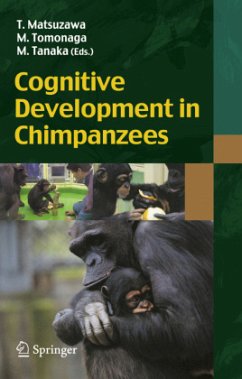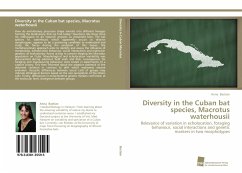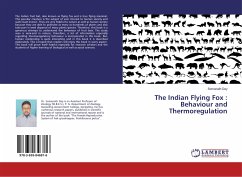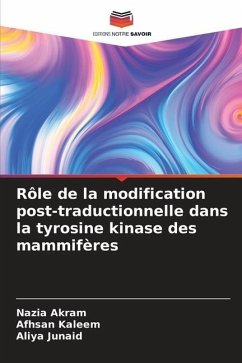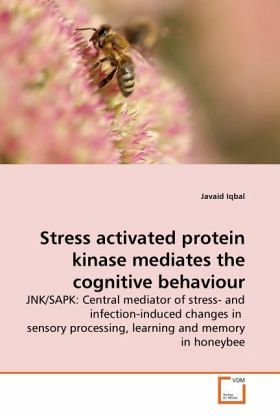
Stress activated protein kinase mediates the cognitive behaviour
JNK/SAPK: Central mediator of stress- and infection-induced changes in sensory processing, learning and memory in honeybee
Versandkostenfrei!
Versandfertig in 6-10 Tagen
59,00 €
inkl. MwSt.

PAYBACK Punkte
0 °P sammeln!
The highly conserved molecular processes underlying learning prompted me to study the impact of external stimuli (infection and environmental stress) on the well investigated behavioural repertoire of honeybee. In both vertebrates and invertebrates, the role of JNK/SAPK (Jun-N-terminal kinase/Stress activated protein kinase) in mechanism of learning and memory formation is not well understood and demands for a thorough investigation, especially in vivo. This work demonstrates a central role of JNK/SAPK, well known as central component in mammalian immune and stress response, in sensory process...
The highly conserved molecular processes underlying learning prompted me to study the impact of external stimuli (infection and environmental stress) on the well investigated behavioural repertoire of honeybee. In both vertebrates and invertebrates, the role of JNK/SAPK (Jun-N-terminal kinase/Stress activated protein kinase) in mechanism of learning and memory formation is not well understood and demands for a thorough investigation, especially in vivo. This work demonstrates a central role of JNK/SAPK, well known as central component in mammalian immune and stress response, in sensory processing and associative learning in honeybees. It presents the first detailed basis for the future analysis of the molecular pathways (especially JNK/SAPK) affected by viral infections (Deformed wing virus; DWV) and other environmental stress stimuli. In addition, it also provides information to identify the molecular targets of the JNK pathway interacting with cognitive functions. Taken together, my data shows first evidence that JNK acts as central mediator between stress and behaviour of honeybee.



